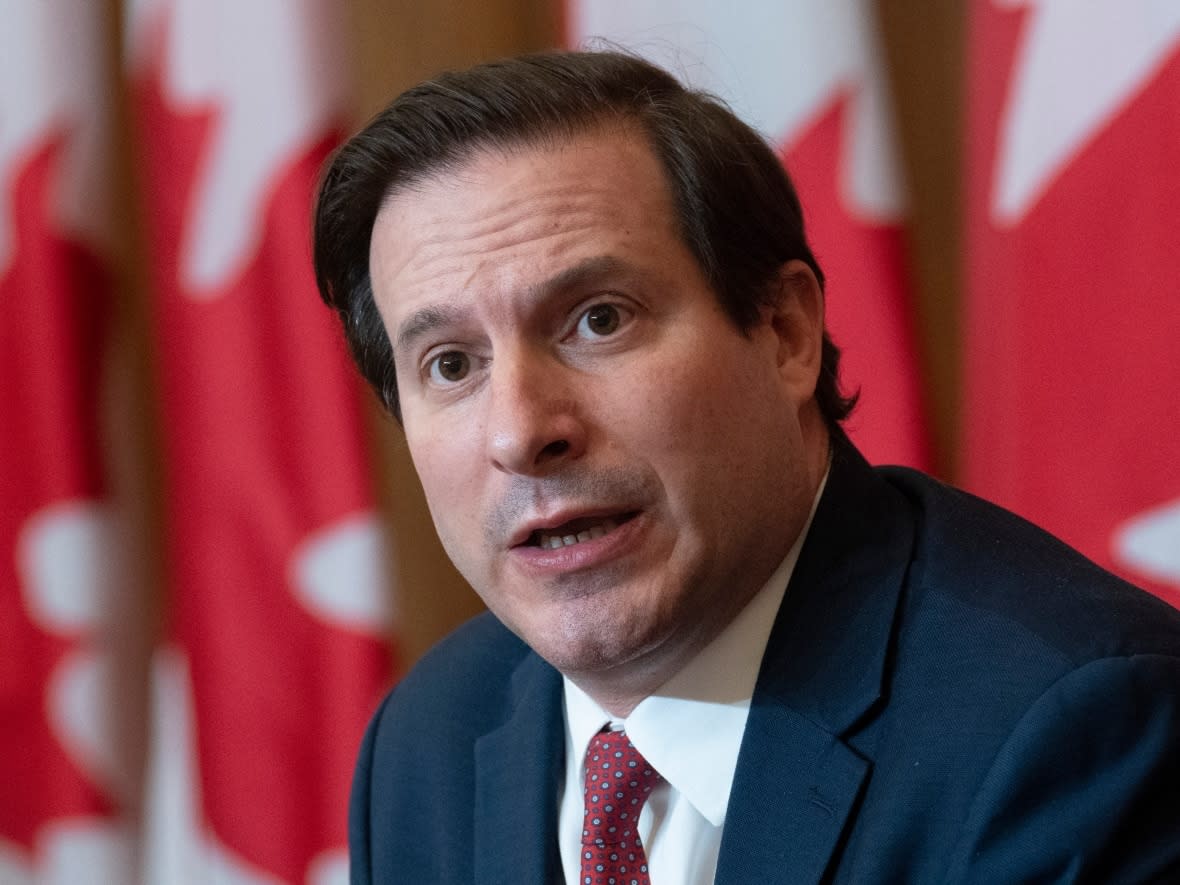Federal minister calls Alberta minister's pushback to firearm buyback 'reckless'

The federal minister of public safety says Alberta's justice minister is engaging in "political brinkmanship" regarding Ottawa's assault weapon buyback program — and the RCMP's role in it.
The federal government banned more than 1,500 assault-style weapons in 2020 — now, they're preparing to buy back those weapons.
It's a move that Public Safety Minister Marco Mendicino said will require local police forces and the RCMP.
But Minister of Justice and Solicitor General Tyler Shandro said he's taking action to ensure the province will not be participating in the program. Saskatchewan's minister of policing and public safety has also pushed back, as has Manitoba's minister of justice.
Speaking to CBC's The House on Saturday, Mendicino said he wants to be clear: the regulation of firearms falls within the exclusive jurisdiction of the federal government.
He said Shandro is mischaracterizing the program and the RCMP's role in it.
LISTEN | Mendicino discusses conflict over buyback program:
The buyback program will require a number of partners in the public safety community, including the RCMP, to help facilitate the surrender, the compensation and ultimately the destruction of the guns, Mendicino said.
"That somehow, by asking RCMP to ensure that we're getting these guns off of their streets that cuts against the grain of public safety, it's the opposite," he said. "[Shandro] is regrettably engaged in, I think, some political brinkmanship which is counterproductive and reckless."
"There's no ambiguity about the relationship that exists between Canada and Alberta as it relates to the role of the RCMP … the RCMP is a federal entity and matters relating to the control management and administration of the RCMP are within exclusive federal jurisdiction."
Mendicino said his letters to provincial and territorial governments — which his office shared with the media — were seeking collaboration in order to implement the program.
"What we got back from the Alberta solicitor general is a political stunt. He knows full well that matters that relate to the enforcement of the Criminal Code and the firearms laws are exclusively within the jurisdiction of the federal government," he said.
'Strong interest in having a fight'
Shandro previously said Alberta will not agree to having RCMP officers act as confiscation agents and will protest any such move under the provincial-federal agreement that governs policing.
"Alberta taxpayers pay over $750 million per year for the RCMP and we will not tolerate taking officers off the streets in order to confiscate the property of law-abiding firearms owners," said Shandro, speaking at a news conference in Calgary.

Alberta is exercising existing authorities to identify the "confiscation plan" as an activity that is not appropriate for the RCMP to be used for, he wrote in a statement posted on Twitter Wednesday.
He also said Alberta will seek to intervene in ongoing judicial review applications challenging the constitutionality of the program.
There's no doubt that the federal government has the power to implement the buyback program, said Lisa Young, a professor of political science at the University of Calgary.
"I don't think that the provincial government is actually questioning the jurisdiction of the federal government to legislate in this area … the province is using its appropriate role intervening in court cases that are challenging this on charter grounds," she said.
"There's really no dispute about whether the federal government can do this. I think the dispute is whether the federal government should do this."

She added that Shandro asking the RCMP not to enforce the program is different than directing them not to enforce it.
"I don't think that Minister Shandro has stepped over that line," Young said.
As for sharing each letters publicly, and exchanging barbs, she said the public back and forth benefits both ministers.
"I don't want to trivialize the issue of firearms control, because I think it's an important issue, but I think that we do need to recognize that both parties that we're looking at here have a pretty strong interest in having a fight with one another over this issue," Young said.
She said the issue speaks to the base of both Liberals and Conservatives, but there are fundamentally different values at play.
Mendicino said he hopes to start the program at the end of 2022, and said it will likely carry through until 2023.

 Yahoo Movies
Yahoo Movies 
